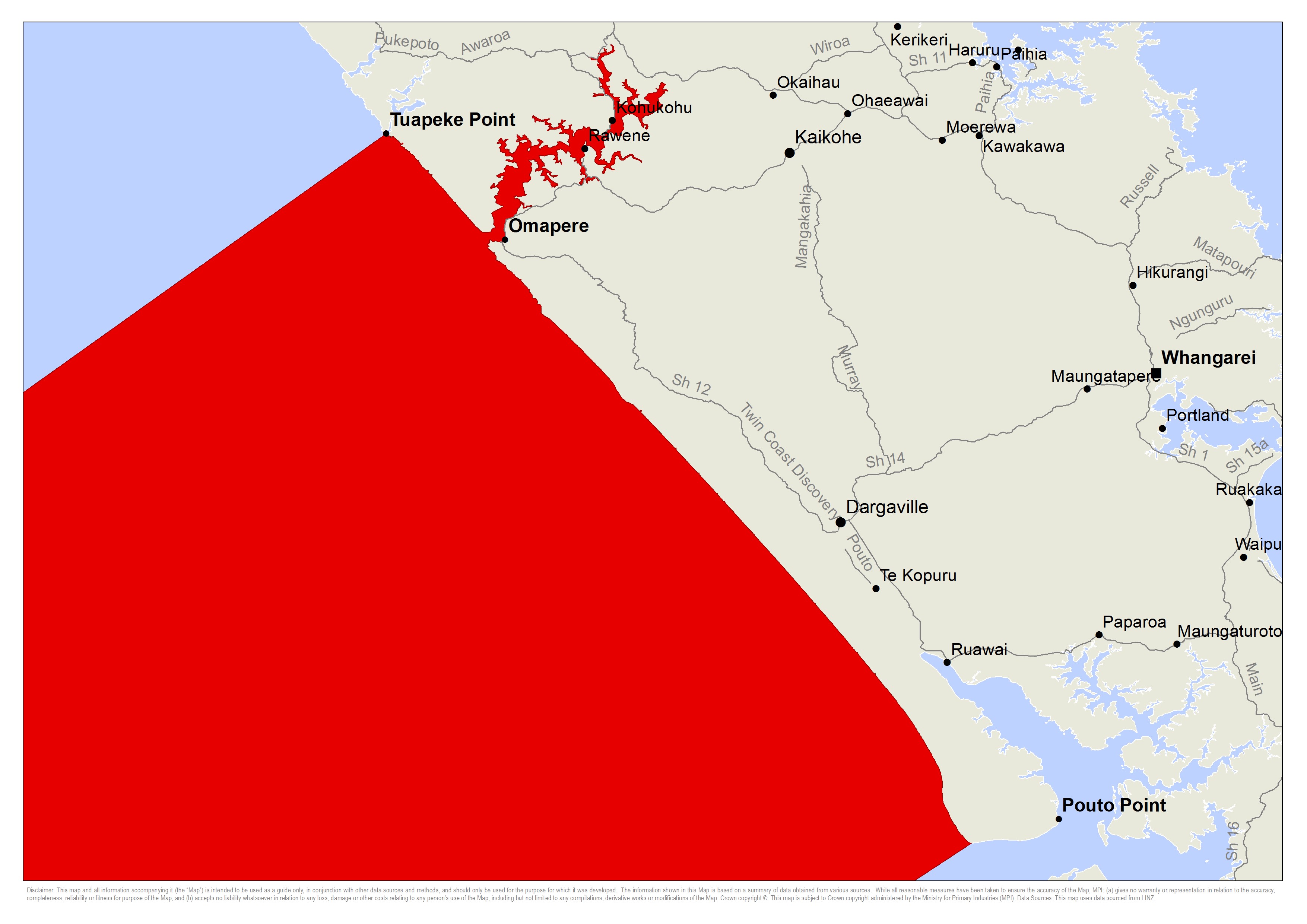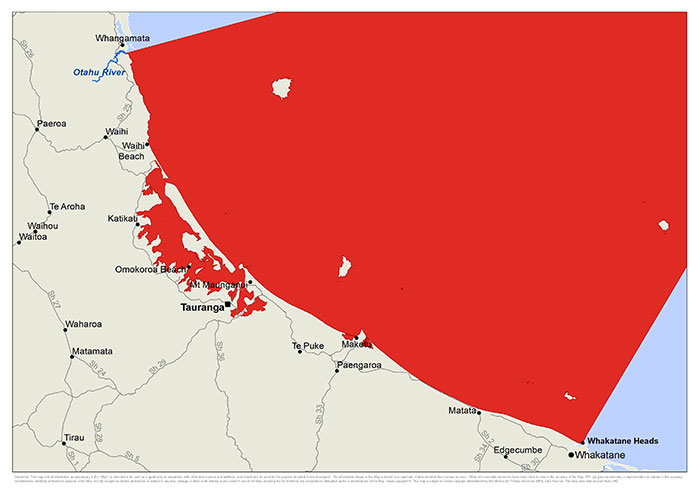Public warnings about toxic shellfish
Shellfish and seawater samples are taken every week from popular shellfish gathering areas around New Zealand and are tested for the presence of toxic algae. If the shellfish are not safe to eat, then public health warnings are issued and signs are posted at affected beaches.
The information on this page relates only to the non-commercial (recreational and traditional) taking of shellfish. Commercially harvested shellfish – sold in shops and supermarkets, or exported – is subject to strict water and flesh monitoring programmes by MPI to ensure they are safe to eat.
Subscribe to email updates about shellfish biotoxin warnings
North Island warnings
Two warnings are in place for the North Island:
- Northland west coast
- Bay of Plenty/Coromandel.
Northland west coast
| Reason for alert | Paralytic Shellfish Poisoning (PSP) |
| Date warning issued | 8 December 2015 Area extended 10 December 2015 |
| Affected area | The Northland west coast area from the southern entrance of Whangape Harbour (Tuapeke Point), southwards to Pouto at the entrance to Kaipara Harbour. Hokianga Harbour is also included in this warning. |
| Shellfish affected | Mussels, oysters, tuatua, pipi, toheroa, cockles, scallops, catseyes, kina (sea urchin) and all other bivalve shellfish. Note, cooking shellfish does not remove the toxin. Pāua, crab and crayfish may still be eaten if the gut has been completely removed prior to cooking, as toxins accumulate in the gut. If the gut is not removed its contents could contaminate the meat during the cooking process. |
| Other information | PSP toxins have been detected in shellfish at levels of up to 1.7mg/kg which is over double the safe limit of 0.8mg/kg set by MPI. Ongoing testing will continue and any changes will be communicated accordingly. Members of the public with queries about shellfish safety may call Whangarei Hospital, phone 09 4304100 and request the on-call Health Protection Officer. |
Map: The affected area in Northland west coast
 Map showing the areas covered by the shellfish biotoxin alert in Northland
Map showing the areas covered by the shellfish biotoxin alert in Northland  Map showing the areas covered by the shellfish biotoxin alert in Northland
Map showing the areas covered by the shellfish biotoxin alert in Northland
Bay of Plenty/Coromandel
| Reason for alert | Paralytic Shellfish Poisoning (PSP) |
| Date warning issued | 9 November 2015 |
| Affected area | From the mouth of the Otahu River at the southern end of Whangamata Beach, southwards along the Bay of Plenty coast to Rogers Road at Pukehina Beach. The area includes Tauranga Harbour, Maketu and Waihi estuaries, Matakana and Motiti Islands, and all other islands along this coastline. |
| Shellfish affected | Mussels, oysters, tuatua, pipi, toheroa, cockles, scallops, catseyes, kina (sea urchin) and all other bivalve shellfish. Note, cooking shellfish does not remove the toxin. Pāua, crab and crayfish may still be eaten if the gut has been completely removed prior to cooking, as toxins accumulate in the gut. If the gut is not removed its contents could contaminate the meat during the cooking process. |
| Other information | PSP toxins have been detected in shellfish at levels of up to 1.4mg/kg, nearly twice the safe limit set by MPI. |
Map: The affected area in the Bay of Plenty/Coromandel
 Map showing the areas covered by the shellfish biotoxin alert in and around Tauranga and the Coromandel.
Map showing the areas covered by the shellfish biotoxin alert in and around Tauranga and the Coromandel.  Map showing the areas covered by the shellfish biotoxin alert in and around Tauranga and the Coromandel.
Map showing the areas covered by the shellfish biotoxin alert in and around Tauranga and the Coromandel.South Island warnings
No warnings are in force in the South Island.
If you get sick after eating shellfish
If anyone becomes ill after eating shellfish from an area where a public health warning has been issued:
- phone Healthline for advice on 0800 61 11 16, or seek medical attention immediately
- advise your nearest public health unit
- keep any leftover shellfish in case it can be tested.
Find your nearest public health unit